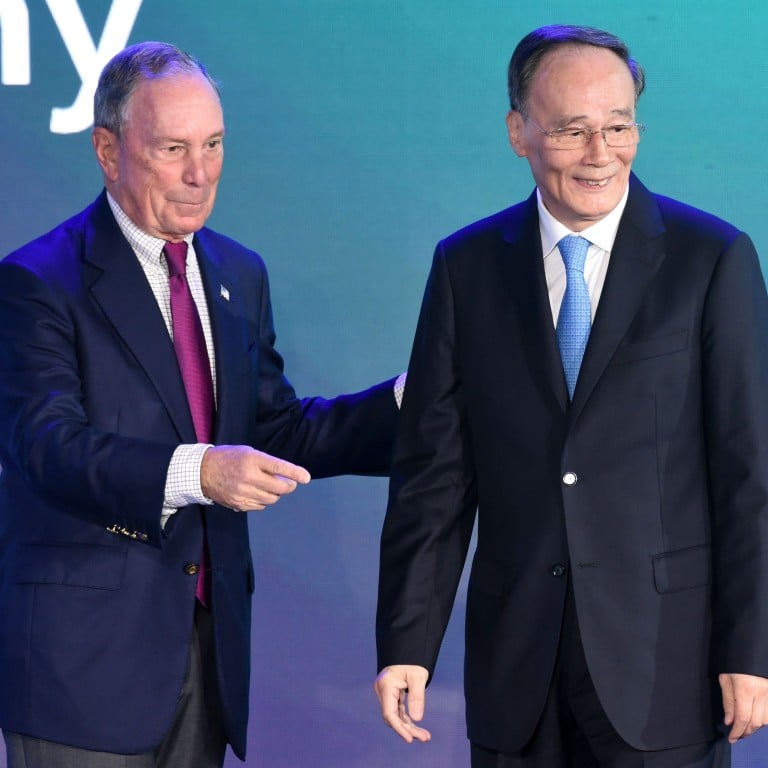
Michael Bloomberg in the White House? China might say thanks, but no thanks
- The billionaire’s history of self-censorship with regard to China is a liability with voters that his rivals in the presidential race would seize on. This would make China-related issues a focus in the election, a turn of event Beijing would not welcome
In September, during an interview on PBS’s Firing Line, Bloomberg stated that Xi was “not a dictator” and that he had to serve “his constituents” or they would somehow scoot him out of office. Xi must have loved this. Bloomberg’s assertion got a few guffaws in the 24-hour American media cycle at the time, but little more came of it. Americans seemed inured to a rich guy censoring himself to avoid the pain of being hit in the wallet by Beijing.
Xi’s plan to tighten grip on Hong Kong would kill his Chinese dream
Bloomberg’s interview was extraordinary. Asked by Margaret Hoover about China’s air pollution, he defended Beijing’s record by saying it was moving coal-fired power plants away from the big cities. “Xi Jinping is not a dictator,” he said. “He has to satisfy his constituents or he’s not going to survive.” Hoover gave him a politely sceptical look, then gave him a chance to recover. “He’s not a dictator?” Bloomberg pushed the life preserver away. “No, he has to – he has a constituency to answer to.” Hoover kept trying, but let’s just say Bloomberg wasn’t taking it back.
The video of this exchange is bound to be looped endlessly by both his Democratic primary opponents and Trump if Bloomberg somehow makes it to the final.
The only thing unpredictable about a President Bloomberg will be whether he announces a resumption of good relations with Beijing before or after lunch on his first day in office.
How to lose friends and make enemies, China style
In the Firing Line interview, he said the role of president is “management”. That’s how more than a few billionaires view politics.
Trump can count on his base in 2020, but many other Americans will also vote for him simply because he’s not the other guy, or gal, like they did in 2016. Bloomberg represents something many Americans loathe – ignoring American values to make big money in oppressive places.
Once political ads start airing of him making fawning comments about Xi, he’ll become this other guy. And Beijing is likely to wish he had stuck to managing from the corner office and not tried to do it from the White House.
Robert Boxwell is director of the consultancy Opera Advisors

